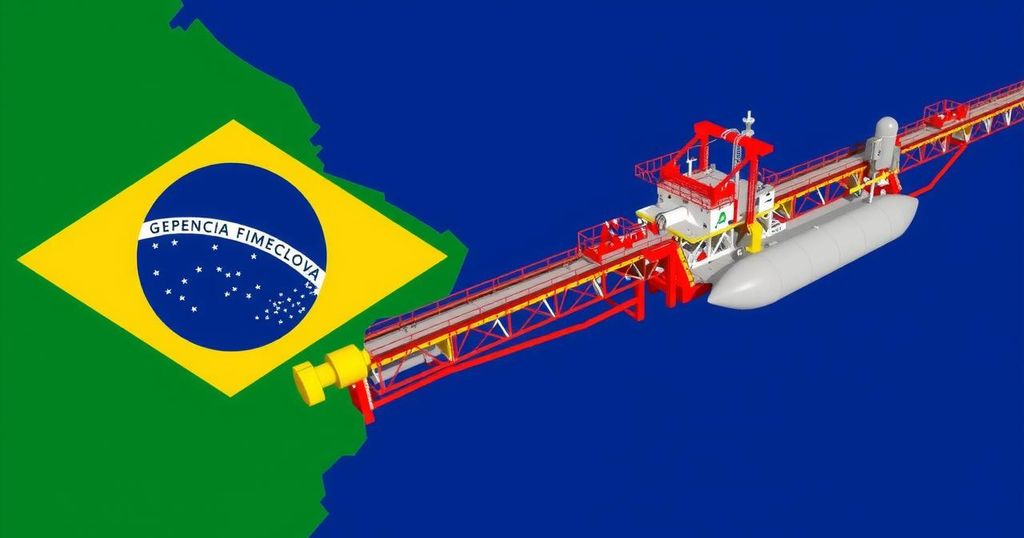On November 22, Brazil’s Grupo Matrix Energia and Argentina’s TotalEnergies signed a key deal with Bolivia’s YPFB to transport Argentine natural gas across Bolivia to Brazil. This agreement aims to bolster energy supplies amidst declining Bolivian exports, with YPFB asserting its role in facilitating regional energy integration and ensuring access to gas for Brazilian consumers.
On November 22, Brazil’s Grupo Matrix Energia and Argentina’s TotalEnergies established a significant agreement with Bolivia’s YPFB for transporting natural gas derived from the Vaca Muerta shale formation in Argentina. Under this accord, YPFB will utilize its infrastructure to transport Argentine gas to Brazil, thereby supporting energy supply amid shifting regional dynamics. YPFB emphasized that this partnership plays a crucial role in facilitating Argentine gas access to Brazilian consumers, enhancing regional energy collaboration.
The backdrop to this arrangement reveals a changing landscape for gas supply in South America, particularly with Bolivia experiencing significant declines in its natural gas exports. Argentina and Brazil, motivated by these changes, are actively seeking alternative sources of natural gas, especially as Bolivia previously filled this role. Imports to Argentina ceased entirely in September, while negotiations for Brazilian imports have been ongoing. Argentina, which harbors the world’s second-largest shale gas reserves, aims to emerge as a gas exporter, although it continues to enhance its pipeline infrastructure and establish a regulatory framework for tariff negotiations.
The contract signed in Santa Cruz allows YPFB’s transport sector to manage the entirety of the natural gas flow along its existing 1000 km pipeline linking Argentina and Brazil. Furthermore, TotalEnergies has secured permissions to export gas from the Austral and Neuquen Basins to Brazil, solidifying its role in this new gas supply chain.
A comprehensive reassessment of gas sourcing in the region illustrates both the challenges and opportunities that come from collaborative agreements. With Bolivia’s export capabilities dwindling, Argentina’s partnerships, particularly through deals like the one with YPFB, indicate a proactive approach to ensure stable energy supplies in Brazil and enhance regional connectivity.
The recent agreement between Brazil, Argentina, and Bolivia’s YPFB marks a pivotal moment in the energy dynamics of South America. With Bolivia’s natural gas exports sharply declining, Argentina is aiming to leverage its colossal shale gas reserves in Vaca Muerta to meet regional demands. Prior to this deal, gas supply lines had been disrupted, notably with Argentina halting imports from Bolivia and Brazil negotiating gas volumes. Establishing a cooperative framework among the neighboring countries is vital, especially as Argentina aspires to become a reliable gas exporter while simultaneously reinforcing Bolivian transport capabilities.
In summary, the strategic agreement between Brazil, Argentina, and Bolivia’s YPFB to transport natural gas from the Vaca Muerta region is indicative of a necessary shift in energy strategy due to declining Bolivian exports. This collaboration not only enhances energy security for both Brazil and Argentina but also underscores the importance of regional cooperation in navigating energy supply challenges.
Original Source: www.worldpipelines.com







